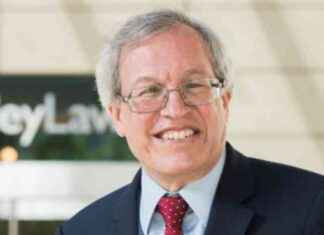Saul Ewing Team Represents Samsung Bioepis in Amgen Patent Case
A team from Saul Ewing, a prominent law firm known for its expertise in intellectual property disputes, recently made an appearance in the U.S. District Court for the District of New Jersey in Camden on behalf of Samsung Bioepis. Samsung Bioepis is facing a patent infringement complaint from biopharmaceutical giant Amgen over the development of biologic drugs that are similar to two of Amgen’s top-performing products. The team representing Samsung Bioepis in this high-stakes legal battle includes William Baton, Sarah Sullivan, and Alexander Callo, all of whom bring a wealth of experience and knowledge to the case.
The Background of the Case
The dispute between Samsung Bioepis and Amgen revolves around the development and marketing of biosimilar versions of two of Amgen’s key biologic drugs. Biosimilars are biologic products that are highly similar to an already approved biologic drug, known as a reference product. These drugs have the potential to offer cost savings and increased access to life-saving treatments for patients. However, they also raise complex legal issues related to patent infringement and intellectual property rights.
Amgen alleges that Samsung Bioepis has infringed on its patents by developing and marketing biosimilar versions of two of its top-selling biologic drugs. This has prompted Amgen to file a patent infringement complaint against Samsung Bioepis, seeking damages and injunctive relief to prevent further infringement. The case is being closely watched by industry insiders and legal experts, as the outcome could have far-reaching implications for the future of biosimilar development and intellectual property rights in the biopharmaceutical industry.
The Role of Saul Ewing in the Case
Saul Ewing has a long history of representing clients in complex intellectual property disputes, making them well-suited to handle the legal challenges presented by the Samsung Bioepis-Amgen case. William Baton, Sarah Sullivan, and Alexander Callo, the attorneys leading the defense for Samsung Bioepis, bring a unique combination of legal expertise and industry knowledge to the table. Their experience in navigating the intricacies of patent law and biopharmaceutical regulations will be invaluable in crafting a robust defense strategy for Samsung Bioepis.
The team from Saul Ewing is expected to mount a vigorous defense on behalf of Samsung Bioepis, challenging the validity of Amgen’s patents and presenting evidence to support their client’s position. They will likely argue that Samsung Bioepis has not infringed on Amgen’s patents and that their biosimilar products are distinct and non-infringing. The outcome of the case will ultimately depend on the strength of the arguments presented by both sides and the interpretation of complex patent law principles by the court.
The Implications of the Case
The outcome of the Samsung Bioepis-Amgen patent case could have significant implications for the biopharmaceutical industry as a whole. A ruling in favor of Amgen could set a precedent that makes it more difficult for companies to develop and market biosimilar products, potentially stifling innovation and limiting patient access to affordable treatments. On the other hand, a ruling in favor of Samsung Bioepis could pave the way for increased competition in the biologic drug market, leading to lower prices and greater access to life-saving medications.
In addition to the immediate legal consequences, the case could also shape the future of patent law and intellectual property rights in the biopharmaceutical sector. The court’s interpretation of key legal issues, such as patent validity and infringement, could have a lasting impact on how biologic drugs are developed, marketed, and protected in the future. As such, the Samsung Bioepis-Amgen case is being closely monitored by industry stakeholders, legal experts, and policymakers alike.
As the legal battle between Samsung Bioepis and Amgen unfolds, all eyes are on the team from Saul Ewing as they navigate the complexities of patent law and intellectual property rights in the biopharmaceutical industry. With their expertise and dedication, William Baton, Sarah Sullivan, and Alexander Callo are well-equipped to mount a strong defense on behalf of their client and secure a favorable outcome in this high-stakes legal dispute. The implications of this case extend far beyond the courtroom, shaping the future of biosimilar development and patent protection in the biopharmaceutical sector.











